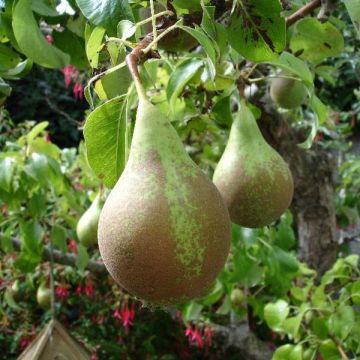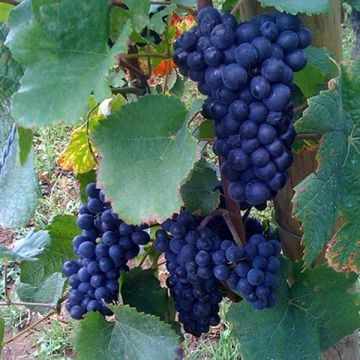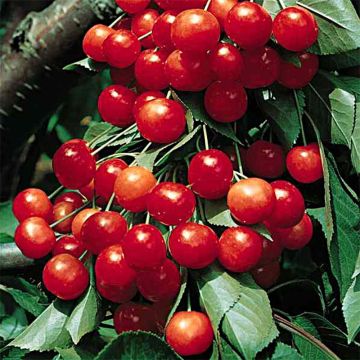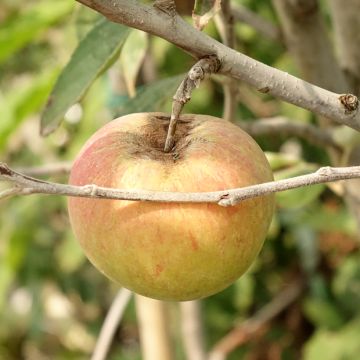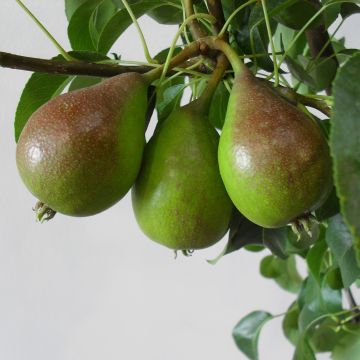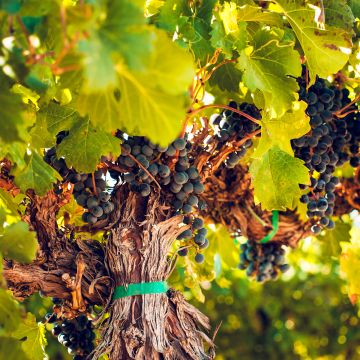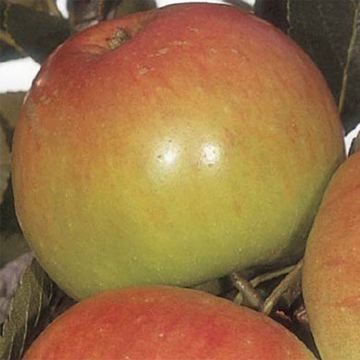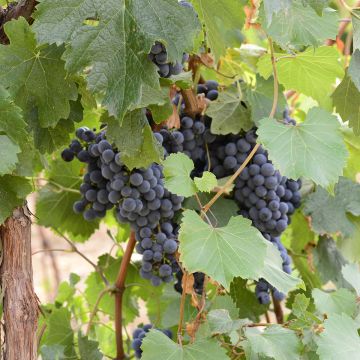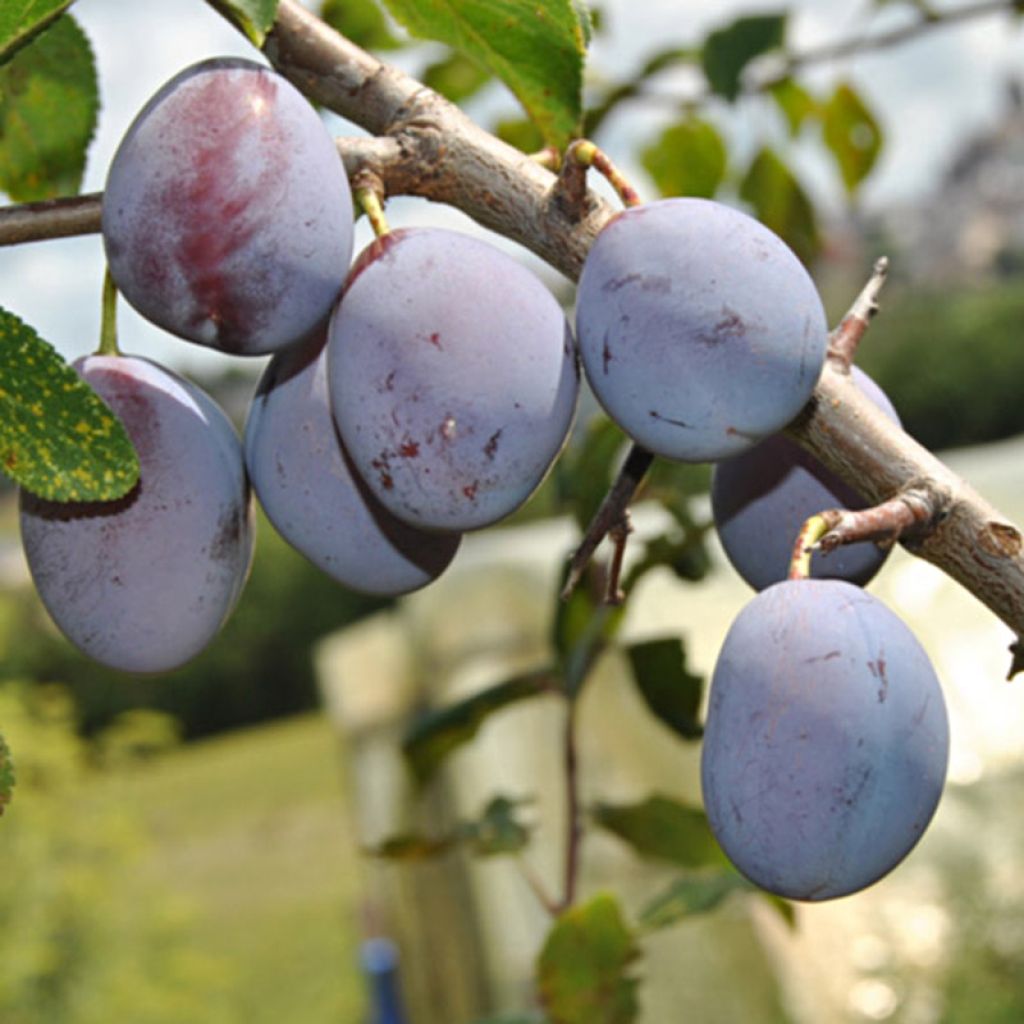

Prunus domestica Quetsche d'Alsace - Common plum
Prunus domestica Quetsche d'Alsace - Common plum
Prunus domestica Quetsche d'Alsace
European plum, Common plum, Garden plum
Plant livré en parfaite santé, avec quelques fleurs. Bien emballé et protégé, et livré rapidement. Un peu de patience pour déguster de bons fruits.
Jean-Marc, 21/04/2023
Special offer!
Receive a €20 voucher for any order over €90 (excluding delivery costs, credit notes, and plastic-free options)!
1- Add your favorite plants to your cart.
2- Once you have reached €90, confirm your order (you can even choose the delivery date!).
3- As soon as your order is shipped, you will receive an email containing your voucher code, valid for 3 months (90 days).
Your voucher is unique and can only be used once, for any order with a minimum value of €20, excluding delivery costs.
Can be combined with other current offers, non-divisible and non-refundable.
Home or relay delivery (depending on size and destination)
Schedule delivery date,
and select date in basket
This plant carries a 6 months recovery warranty
More information
We guarantee the quality of our plants for a full growing cycle, and will replace at our expense any plant that fails to recover under normal climatic and planting conditions.
Description
The 'Quetsche d'Alsace' Plum is a self-fertile variety specific to the Alsace and Lorraine regions. Very productive and very robust, this variety produces elongated fruits, ripening in early September. The skin is thin, reddish-purple, covered with a whitish wax called bloom. The flesh is greenish-yellow, firm, not very juicy, and slightly acidic, with the characteristic aroma of quetsches. While they can be consumed fresh, they will be even better when dried. They keep very well after harvesting.
The word 'Quetsche' means Damson Plum in Alsatian. Quetsche plums come from Syria, which has supplied many varieties since the Middle Ages. The 'Quetsche d'Alsace' variety has been cultivated for a long time.
This fruit tree naturally reaches a height of up to 6m (20ft) at maturity. The slender and bushy silhouette conferred by its upright-bushy habit is appreciated in the garden. It is not very demanding regarding soil type, apart from the absence of limestone.
Its leaves are oval, almost oblong, crenate-dentate, and slightly downy.
Flowering occurs in April, which allows it to escape spring frosts. It is not very spread out. The tree is then covered entirely with white flowers that appear on the previous year's branches. They are self-fertile.
The fruits, the quetsches, famous in eastern France, ripen in early September.
The plums are eaten raw at the base of the tree, in fruit salads, in desserts and pastries, and as accompaniments to meats and dishes. They are transformed into jams, fruits in syrup, compotes... They can also be used to make eau-de-vie. You can also dry them in the sun during the summer, pitted and hung in a garland on a thread or in the oven.
Report an error about the product description
Prunus domestica Quetsche d'Alsace - Common plum in pictures
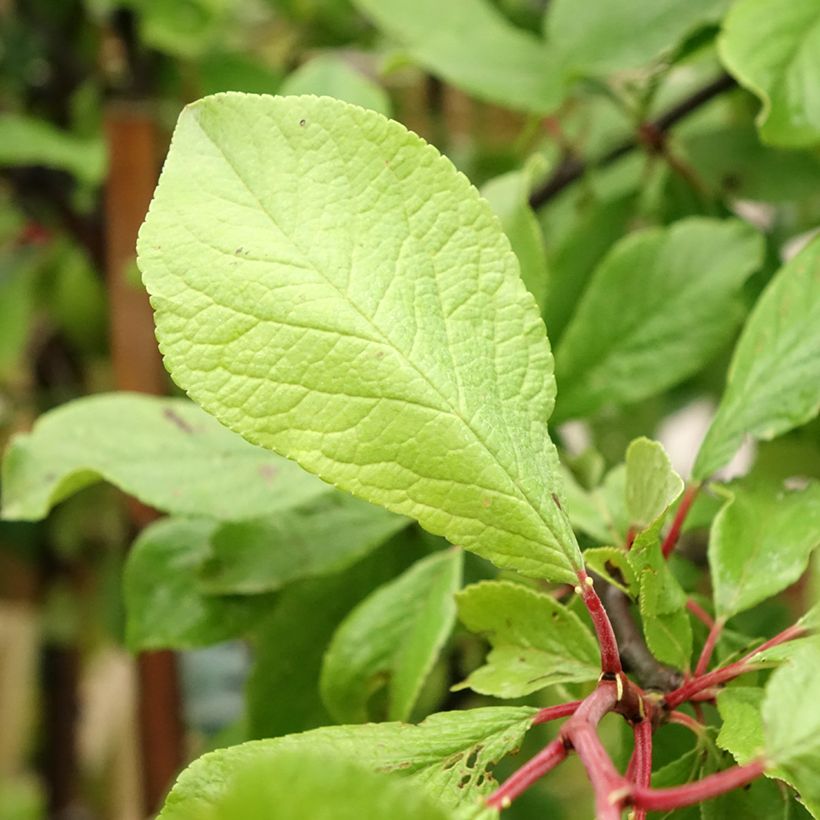

Plant habit
Fruit
Flowering
Foliage
Botanical data
Prunus
domestica
Quetsche d'Alsace
Rosaceae
European plum, Common plum, Garden plum
Cultivar or hybrid
Planting and care
Easy to grow, the Plum 'Quetsche d'Alsace' thrives in any light, rich, neutral or acidic soil, moist but not excessively humid, and without limestone. Ensure proper drainage of the planting hole with a thin layer of gravel. Dig a hole two to three weeks before planting, twice as wide and deep as the pot. On the day of planting, place the tree with its pot in a basin of water, allowing the soil to be moistened by capillary action. Add compost to the bottom of the hole. Plant the tree in the hole and fill it with soil and compost. Do not bury the graft union. Firmly tamp down the soil around the base. The root ball should be completely covered. Water thoroughly.
In winter, you can add a small handful of wood ash, rich in potash, to improve fruiting.
Planting period
Intended location
Care
-
, onOrder confirmed
Reply from on Promesse de fleurs
Similar products
Haven't found what you were looking for?
Hardiness is the lowest winter temperature a plant can endure without suffering serious damage or even dying. However, hardiness is affected by location (a sheltered area, such as a patio), protection (winter cover) and soil type (hardiness is improved by well-drained soil).

Photo Sharing Terms & Conditions
In order to encourage gardeners to interact and share their experiences, Promesse de fleurs offers various media enabling content to be uploaded onto its Site - in particular via the ‘Photo sharing’ module.
The User agrees to refrain from:
- Posting any content that is illegal, prejudicial, insulting, racist, inciteful to hatred, revisionist, contrary to public decency, that infringes on privacy or on the privacy rights of third parties, in particular the publicity rights of persons and goods, intellectual property rights, or the right to privacy.
- Submitting content on behalf of a third party;
- Impersonate the identity of a third party and/or publish any personal information about a third party;
In general, the User undertakes to refrain from any unethical behaviour.
All Content (in particular text, comments, files, images, photos, videos, creative works, etc.), which may be subject to property or intellectual property rights, image or other private rights, shall remain the property of the User, subject to the limited rights granted by the terms of the licence granted by Promesse de fleurs as stated below. Users are at liberty to publish or not to publish such Content on the Site, notably via the ‘Photo Sharing’ facility, and accept that this Content shall be made public and freely accessible, notably on the Internet.
Users further acknowledge, undertake to have ,and guarantee that they hold all necessary rights and permissions to publish such material on the Site, in particular with regard to the legislation in force pertaining to any privacy, property, intellectual property, image, or contractual rights, or rights of any other nature. By publishing such Content on the Site, Users acknowledge accepting full liability as publishers of the Content within the meaning of the law, and grant Promesse de fleurs, free of charge, an inclusive, worldwide licence for the said Content for the entire duration of its publication, including all reproduction, representation, up/downloading, displaying, performing, transmission, and storage rights.
Users also grant permission for their name to be linked to the Content and accept that this link may not always be made available.
By engaging in posting material, Users consent to their Content becoming automatically accessible on the Internet, in particular on other sites and/or blogs and/or web pages of the Promesse de fleurs site, including in particular social pages and the Promesse de fleurs catalogue.
Users may secure the removal of entrusted content free of charge by issuing a simple request via our contact form.
The flowering period indicated on our website applies to countries and regions located in USDA zone 8 (France, the United Kingdom, Ireland, the Netherlands, etc.)
It will vary according to where you live:
- In zones 9 to 10 (Italy, Spain, Greece, etc.), flowering will occur about 2 to 4 weeks earlier.
- In zones 6 to 7 (Germany, Poland, Slovenia, and lower mountainous regions), flowering will be delayed by 2 to 3 weeks.
- In zone 5 (Central Europe, Scandinavia), blooming will be delayed by 3 to 5 weeks.
In temperate climates, pruning of spring-flowering shrubs (forsythia, spireas, etc.) should be done just after flowering.
Pruning of summer-flowering shrubs (Indian Lilac, Perovskia, etc.) can be done in winter or spring.
In cold regions as well as with frost-sensitive plants, avoid pruning too early when severe frosts may still occur.
The planting period indicated on our website applies to countries and regions located in USDA zone 8 (France, United Kingdom, Ireland, Netherlands).
It will vary according to where you live:
- In Mediterranean zones (Marseille, Madrid, Milan, etc.), autumn and winter are the best planting periods.
- In continental zones (Strasbourg, Munich, Vienna, etc.), delay planting by 2 to 3 weeks in spring and bring it forward by 2 to 4 weeks in autumn.
- In mountainous regions (the Alps, Pyrenees, Carpathians, etc.), it is best to plant in late spring (May-June) or late summer (August-September).
The harvesting period indicated on our website applies to countries and regions in USDA zone 8 (France, England, Ireland, the Netherlands).
In colder areas (Scandinavia, Poland, Austria...) fruit and vegetable harvests are likely to be delayed by 3-4 weeks.
In warmer areas (Italy, Spain, Greece, etc.), harvesting will probably take place earlier, depending on weather conditions.
The sowing periods indicated on our website apply to countries and regions within USDA Zone 8 (France, UK, Ireland, Netherlands).
In colder areas (Scandinavia, Poland, Austria...), delay any outdoor sowing by 3-4 weeks, or sow under glass.
In warmer climes (Italy, Spain, Greece, etc.), bring outdoor sowing forward by a few weeks.































